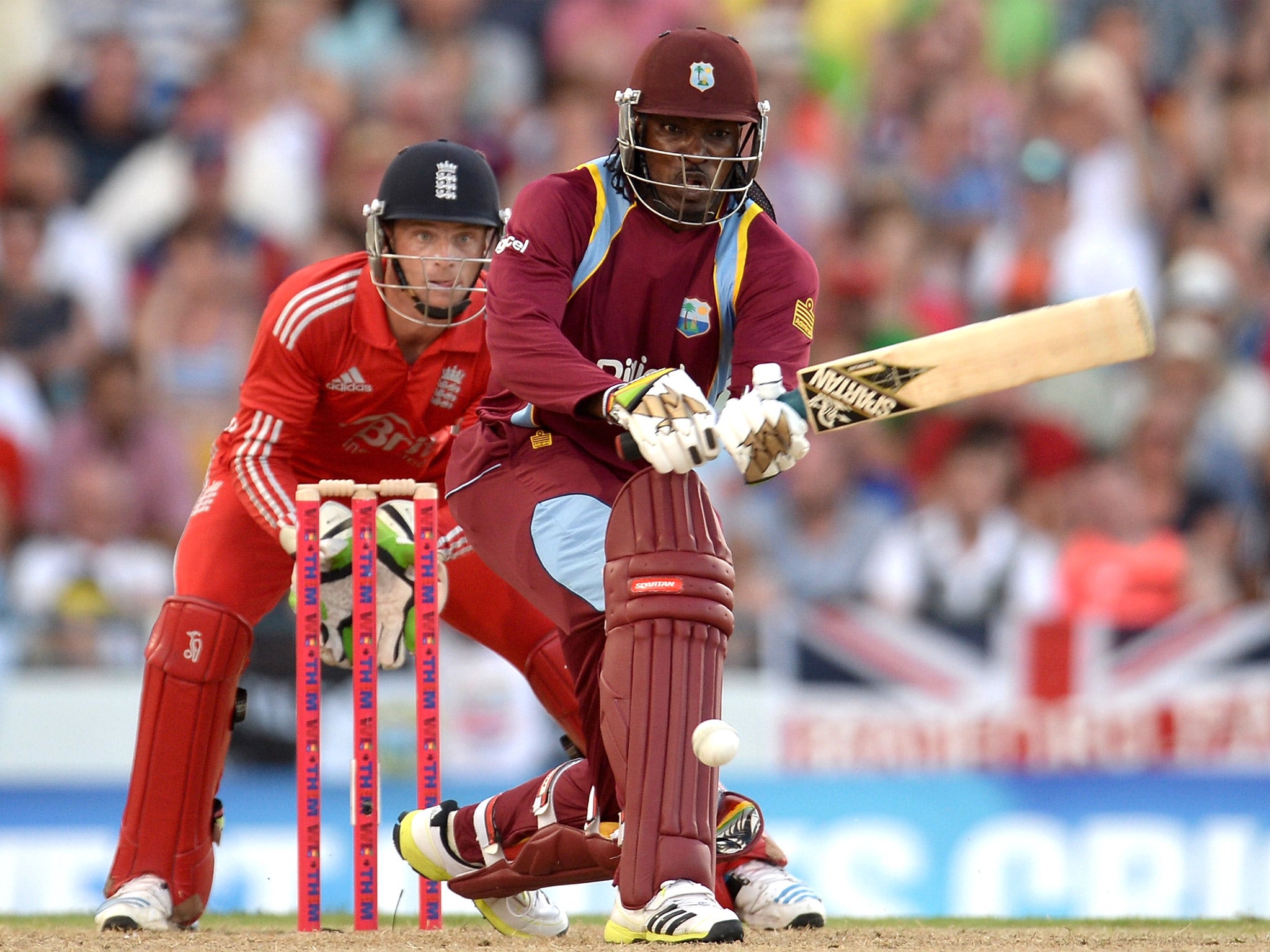2015 Cricket World Cup: Why I'd love to see West Indies win the tournament
Wouldn't it be great to see the renegade bunch crash in on the party?

The enduring excitement of a cricket finale never changes for those in the Caribbean, though on the eve of another World Cup they are coming to terms with a different type of opponent providing it. Thirty years ago this summer, Clive Lloyd’s side beat Pakistan by one wicket on their way to lifting the trophy at Lord’s. Yesterday they squeaked home against Scotland by three runs, 72 hours after being embarrassed at England’s hands. Just how did it to come to this, West Indies?
That they should even be competing in the tournament, for which this week’s two games have been preparation, is a bonus, given that this side were facing the threat of a £40m lawsuit two months ago, having become the first team to abandon a tour – to India – because of a dispute over pay. The Indian cricket board is fabulously wealthy but it wanted the West Indians to be punished for their own indiscipline.
Perhaps we would all have shared some of that Indian sentiment once, when Joel Garner, Andy Roberts, Michael Holding and Colin Croft – Test cricket’s first all 90mph bowling quartet – were ritually demolishing an English side which lost by 92 runs to them in the 1979 final. But it’s hard now to see beyond the tragedy of the decline and fall of that cricketing force of nature. Click on some of the YouTube videos which accompany “Rally Round the West Indies”, the Trinidadian Calypsonian David Rudder’s beautiful hit elegy to the team’s greatness, and I defy you to feel otherwise.
That’s not to pretend that West Indies haven’t been authors of their own chaos. The confrontations between a militant players’ association and an out-of-touch West Indies Cricket Board have been interminable and hopes of continuity forlorn, with eight board presidents, 11 captains, 12 coaches and seven chief executives during the decades of decline.
But the struggle has always been more existential than that. Its roots are located in the fact that the West Indies is a fictional concept. “It’s the only thing we do together,” Holding says of the game, in the stellar film Fire in Babylon and the islands have certainly become more fragmented and mutually hostile than ever. Trinidad and Barbados have recently refused entry to and deported Jamaicans. There is no great wealth, either. Rewarding the islands’ cricketers has not been easy.
Lloyd and his players were actually the ones who demonstrated the value of industrial action. When they moved away en masse to play for Kerry Packer in the 1970s it was because the all-white cricket board had steadfastly refused them the kind of salaries which their sensational cricket warranted. “They were trying to keep the black man down,” was how Croft later put it. That incredible 1975 team – for which Lloyd’s 102 and Keith Boyce’s four wickets saw off Australia in the World Cup final – was something quite extraordinary: a model for Caribbean cooperation and unity which the islands’ politicians had never managed to find.
That unity always looked fragile. But now it is so frayed that this once great force looks like it may soon be lost for ever – blown apart by an Indian Premier League whose wages have turned the best West Indians into nomads, travelling around the world from one T20 league to the next rather than participate in the islands’ domestic competition – the proving ground of Test players. A West Indian can earn in seven weeks what he can earn in seven years on a West Indian Cricket Board salary. The West Indies match fee which was such a source of controversy last autumn was $5,750 (£3,570). That’s half the kind of money an England Test player will earn and equivalent to a lower-league footballer’s pay within these shores.
West Indies’ road ahead looks very bumpy. Qualification for the quarter-finals is achievable, given that Ireland and the UAE are among the early opposition. But there is a reason why Tony Cozier, whose knowledge of West Indian cricket surpasses that of all others, describes as “unreasonable” the decision to put the mantle of captaincy on 23-year-old Jason Holder. The pressure of that task has been too much for far wiser men than Holder.
Neither Richie Richardson nor Shivnarine Chanderpaul lasted long and Brian Lara stepped down in 2000 to seek “professional” help. Holder’s recent mauling in South Africa, where the 6ft 7in seam bowler was carted for seven sixes and for 91 runs from his nine overs, made you flinch for him. He desperately needs a motivated Chris Gayle now, though the 35-year-old has just one half-century in his last 16 innings.
West Indies’ troubles make England’s own autumn squabbles between Kevin Pietersen and “woodpecker” Peter Moores look petty and deeply unattractive. Eoin Morgan’s side can win or lose this month and the wheels will keep turning. That’s what comes of being among Australia and India at cricket’s top table. But a West Indies story to tell in the days ahead would be really something. It could actually mean the wheels start turning again, providing momentum to the latest plans to reorganise the Caribbean game and tackle the challenges of managing different nations separated by thousands of miles of ocean.
A West Indies disaster in the days ahead? Well, that does not really bear contemplation. Forgive me for holding on to a fervent, if hopeless, wish that this disjointed, renegade bunch crash in on the party and win the thing.
Subscribe to Independent Premium to bookmark this article
Want to bookmark your favourite articles and stories to read or reference later? Start your Independent Premium subscription today.

Join our commenting forum
Join thought-provoking conversations, follow other Independent readers and see their replies